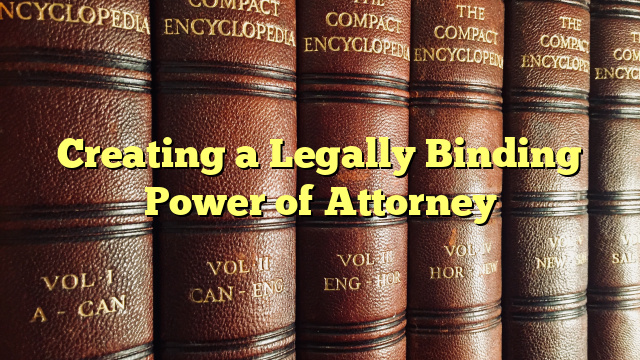Table of Contents
- Introduction
- What is Power of Attorney?
- Best Form of Power of Attorney
- Giving Someone Power of Attorney in CA
- Types of Power of Attorney California
- Advantages and Disadvantages of Power of Attorney
- Conclusion
Introduction
A power of attorney (POA) is a document you use to grant someone legal authority to manage your affairs. You may grant a person, who can be referred to as an attorney-in-fact, the authority to make decisions on your behalf or to act in your stead regarding your legal and financial matters. Your ability to grant another person the authority to make decisions on your behalf is a legal right that must be exercised in certain legally prescribed forms.
What is Power of Attorney?
A power of attorney is a legal document that allows another person, referred to as an “attorney-in-fact” or “agent,” to act on your behalf. The person granted the authority to act for you is called the “principal.” The power of attorney document grants the attorney-in-fact the authority to make decisions on behalf of the principal in certain areas, such as financial and legal matters. The principal can grant the attorney-in-fact the authority to manage all their affairs or to make decisions according to a specific plan or power of attorney document.
Best Form of Power of Attorney
The best form of power of attorney depends on the needs of the individual. A general power of attorney grants broad authority to the attorney-in-fact, while a special power of attorney grants more limited authority to the attorney-in-fact. An enduring power of attorney remains in effect even if the principal is incapacitated or unable to make decisions. A temporary power of attorney grants authority for a specific purpose and only for a limited period of time.
Giving Someone Power of Attorney in CA
The process of granting a power of attorney in California differs slightly from the process in other states. California requires that the principal sign the power of attorney document in the presence of a notary public. The attorney-in-fact must also sign the document. When the document is signed, the notary public must verify the documents, and the power of attorney document must be filed with the county clerk’s office.
Types of Power of Attorney California
There are four types of power of attorney documents in California. The general power of attorney grants broad authority to the attorney-in-fact to make decisions regarding financial matters. A special power of attorney grants limited authority to the attorney-in-fact to act on behalf of the principal. An enduring power of attorney remains in effect even if the principal is incapacitated or unable to make decisions. A temporary power of attorney grants authority for a specific purpose and only for a limited period of time.
Advantages and Disadvantages of Power of Attorney
A power of attorney can be a useful tool in planning for the future. An attorney-in-fact can make decisions on behalf of the principal in the event the principal is incapacitated or otherwise unable to make those decisions. However, granting a power of attorney also carries certain risks. An attorney-in-fact may abuse their authority and misuse funds or property. It’s important to select an attorney-in-fact you trust to ensure that your financial and legal affairs are managed properly.
Conclusion
A power of attorney is a legal document granting someone else the authority to make decisions on your behalf.


A power of attorney is a legally binding document that can be incredibly useful.